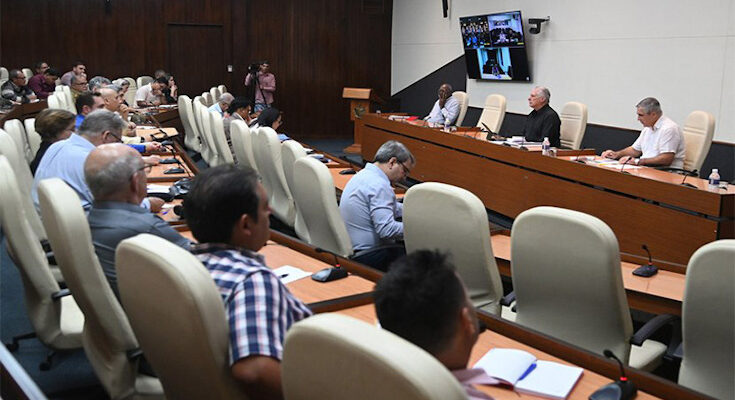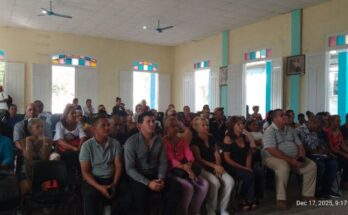According to Miguel Díaz-Canel, President of the nation in a recent meeting with academics and directors of organizations and entities, Cuba has the potential to advance rapidly in the introduction of artificial intelligence (AI), based on the real professional capabilities in the country for its development in all areas.
Díaz-Canel said that artificial intelligence can be developed in all university careers, including Social Sciences and also in the medical field, where much progress is being made in the use of this tool worldwide.
Rafael Bello Pérez, from the Marta Abreu Central University of Las Villas, considered the founder of AI development in Cuba, agreed with the President and proposed the creation of a director program in each university to promote leading initiatives in each career.
Alejandro Rosete Suárez, from the Department of Artificial Intelligence and Computer Systems Infrastructure of the José Antonio Echeverría Technological University of Havana (Cujae) and another of the national leaders in the field, expressed the same opinion.
Walter Baluja García, Minister of Higher Education, considers that the potentials are real in Cuban universities for the development of AI, taking into account that professionals who have graduated with honors in foreign universities in that specialty are working in them.
In Baluja García’s opinion, in view of such an achievement, it is necessary to increase the preparation of the personnel in the houses of higher studies in the use of emerging technologies, as well as their use in the Central Administration of the State.
Díaz-Canel pointed out that it is also necessary to extend the results in AI obtained in one entity or sector to others that need it, so that it can be used as a service.
Focusing on the proposed actions in the Human Capital axis, Professor Denys Buedo Hidalgo, director of Informatization of the Ministry of Higher Education, made a presentation in which he explained that the general objective is to prepare personnel for the economic, cultural, political and social transformation imposed by the responsible use and development of AI.
The specific objectives of the strategy include, among others, updating curricula at all levels of education, including content that promotes the development of digital competencies in students, to facilitate their adoption of AI and its applications.
It is also intended to improve the teaching-learning process and incorporate the use of AI to create personalized educational itineraries that adapt to the needs, skills and learning pace of each student.
Also, the goals are to implement professional development and training programs in AI aimed at teachers and all those involved in the educational process; facilitate the understanding and adoption of AI in informal educational environments, through resources and activities designed specifically for this purpose; and develop training plans in AI for personnel involved in science, research, innovation and for State and Government cadres.
This week’s exchange with experts and scientists was also led by the Vice President of the Republic, Salvador Valdés Mesa, and Deputy Prime Minister Eduardo Martínez Díaz.
Also in attendance were Susely Morfa González, member of the Central Committee of the Communist Party of Cuba and head of the Department of Attention to the Social Sector; Deputy Prime Minister Inés María Chapman, and several ministers, among other executives.
(With information from ACN)




